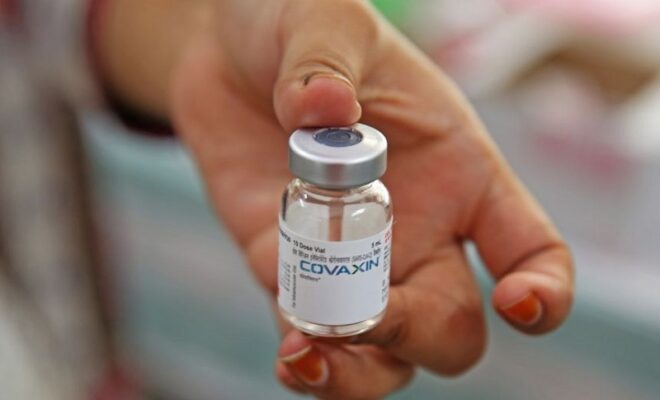Covaxin Efficacy Determined At 50Percent: First World Study

![]() New Delhi -According to a study published in The Lancet Infectious Diseases Journal, after assessing 2714 hospital workers at AIIMS, New Delhi, it was ascertained that Covaxin is actually 50 percent effective.
New Delhi -According to a study published in The Lancet Infectious Diseases Journal, after assessing 2714 hospital workers at AIIMS, New Delhi, it was ascertained that Covaxin is actually 50 percent effective.
This is being considered as the first real-world study conducted over patients that were who were symptomatic and underwent RT-PCR testing for the coronavirus between April 15 and May 15 this year.
It has been ascertained that two doses of Covaxin actually have 50 percent effectiveness against symptomatic Covid-19. The study period has coincided with the outbreak of the Delta variant in India and the subsequent large exposure to the medical staff. Its effectiveness has therefore proved itself; while in use of the variant that had been the reason for maximum deaths in India.
Covaxin, developed by Hyderabad-based Bharat Biotech along with the Indian Council of Medical Research (ICMR) under the research name of BBV152, is a Vero cell-derived, inactivated whole-virion vaccine formulated with a novel adjuvant, and administered in a two-dose regimen 28 days apart.
Related Posts
Earlier this month, the vaccine finally received approval from the World Health Organisation (WHO) for emergency use. The formula was widely used in India in January to combat the outbreak of the Delta variant. The adjusted vaccine effectiveness against symptomatic Covid-19 after full vaccination with Covaxin, with the second dose administered 14 days or more before undergoing RT-PCR testing, was found to be 50 percent. The effectiveness of two vaccine doses remained stable over the seven-week follow-up period.
Among the factors possibly responsible for the lower vaccine effectiveness could be the fact that the study was conducted only among hospital employees who have a higher risk of exposure to infection than the general population, and that it was conducted at the peak of the second wave when test positivity rates were generally high in Delhi. Also, the prevalence of circulating variants of concern, especially delta, may have contributed to the lower effectiveness, the study said.



